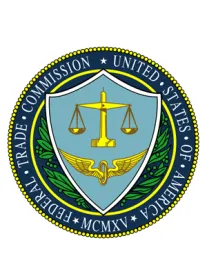On March 15, 2016, the Federal Trade Commission (FTC) announced a settlement with department store Lord & Taylor ("L&T") relating to native advertising for its Design Lab collection of clothing in various online materials, including a social media "influencer" campaign, branded blog posts, photos, video uploads, and advertorials in online fashion magazines. (FTC Press Release, March 15, 2016)
Key Take-Away
Only a few months after issuing its Enforcement Policy Statement on Deceptively Formatted Advertisements and Native Advertising: A Guide for Businesses, the FTC has announced its first significant enforcement action under those policies. This is an indication of the FTC's continuing focus on the area and the need for companies to pay close attention to the FTC's guidance on digital advertising and marketing activities.
Of particular note, the FTC alleges that L&T paid 50 online fashion "influencers" or "endorsers" to post Instagram photographs of themselves wearing a dress from the Design Lab collection. According to the FTC's complaint, the influencers and endorsers failed to properly disclose that L&T had given each influencer the dress, and in some cases, thousands of dollars, in exchange for their social media endorsements. L&T contractually required the influencers to include "#DesignLab" and "@lordandtaylor" in their posts, but did not require them to disclose that L&T had provided the free dress and compensated them for the endorsement. According to the complaint, L&T reviewed and approved the influencers' social media posts with respect to the required wording (but not with respect to the FTC's endorsement or native ad requirements). L&T also paid for, reviewed and pre-approved articles in the online fashion magazine Nylon, but the articles failed to disclose those facts. L&T's online ad campaign was a significant success, with the advertised dress selling out.
Many aspects of the FTC's allegations and order are not surprising, but rather are reminders of established policies. For example, the FTC has long required endorsers to disclose any "material connection" to advertisers (i.e., any relationship that may affect the weight or credibility of the endorsement, not reasonably expected by consumers, such as money or free products) under its Endorsement Guides. And for years, the FTC has required advertisers to disclose that advertorials or similar editorial-like content are paid ads, as confirmed in the recent native ad guidance. Similarly, it is not particularly surprising that the attempted disclosures included in the influencers' social media posts (i.e., "#DesignLab" and "@lordandtaylor") were not sufficient to identify their material connection to L&T or that the content was paid advertising. (For example, including "Ad:" at the beginning of each influencer Instagram post may have sufficed under the FTC's .com Disclosures: How to Make Effective Disclosures in Digital Advertising guide.)
Perhaps the most interesting aspect of the settlement is the detailed education, monitoring and compliance program requirement. The FTC order requires L&T to implement a system to educate its endorsers on their responsibility and to monitor and review endorsers' representations. Specifically, L&T must ensure that each endorser signs a statement acknowledging his or her responsibility to disclose any material connection to L&T in any endorsements going forward. L&T must terminate any endorser that fails "to disclose, clearly and conspicuously, and in close proximity to the representation, a material connection between such endorser" and L&T. The endorser may receive "one notice of a failure to disclose and an opportunity to cure the disclosure" if L&T reasonably determines the failure was inadvertent. L&T must also maintain reports sufficient to show its compliance with these monitoring requirements.
Although this order would only bind L&T, it is instructive for all social media mavens. Many commentators expect that the FTC will continue increasing its enforcement actions in the native advertising arena, especially in the social media environment.
The agreement and consent order are subject to public comment through April 14, 2016.








 />i
/>i
